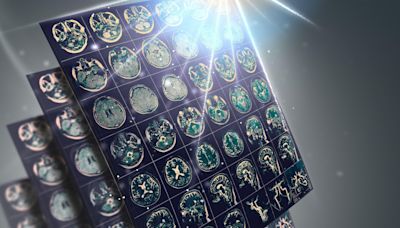Search results
Jul 10, 2024 · Alzheimer's disease is a brain disorder that gets worse over time. It's characterized by changes in the brain that lead to deposits of certain proteins. Alzheimer's disease causes the brain to shrink and brain cells to eventually die.
Alzheimer's is a progressive disease, where dementia symptoms gradually worsen over a number of years. In its early stages, memory loss is mild, but with late-stage Alzheimer's, individuals lose the ability to carry on a conversation and respond to their environment.
Alzheimer’s disease causes a decline in memory, thinking, learning and organizing skills over time. It’s the most common cause of dementia and usually affects people over the age of 65. There’s no cure for Alzheimer’s, but certain medications and therapies can help manage symptoms temporarily.
Alzheimer’s disease is the most common type of dementia. It is a progressive disease beginning with mild memory loss and possibly leading to loss of the ability to carry on a conversation and respond to the environment.
On this page: How does Alzheimer's disease affect the brain? Signs and symptoms of Alzheimer's disease. Stages of Alzheimer's disease. What causes Alzheimer’s disease? How is Alzheimer’s disease diagnosed? How is Alzheimer’s disease treated? Support for families and Alzheimer's disease caregivers.
Alzheimer's disease ( AD) is a neurodegenerative disease that usually starts slowly and progressively worsens, [ 2] and is the cause of 60–70% of cases of dementia. [ 2][ 15] The most common early symptom is difficulty in remembering recent events. [ 1] As the disease advances, symptoms can include problems with language, disorientation ...
Alzheimer’s disease is a brain disorder that slowly destroys memory and thinking skills and, eventually, the ability to carry out the simplest tasks. In most people with the disease — those with the late-onset type symptoms first appear in their mid-60s.




